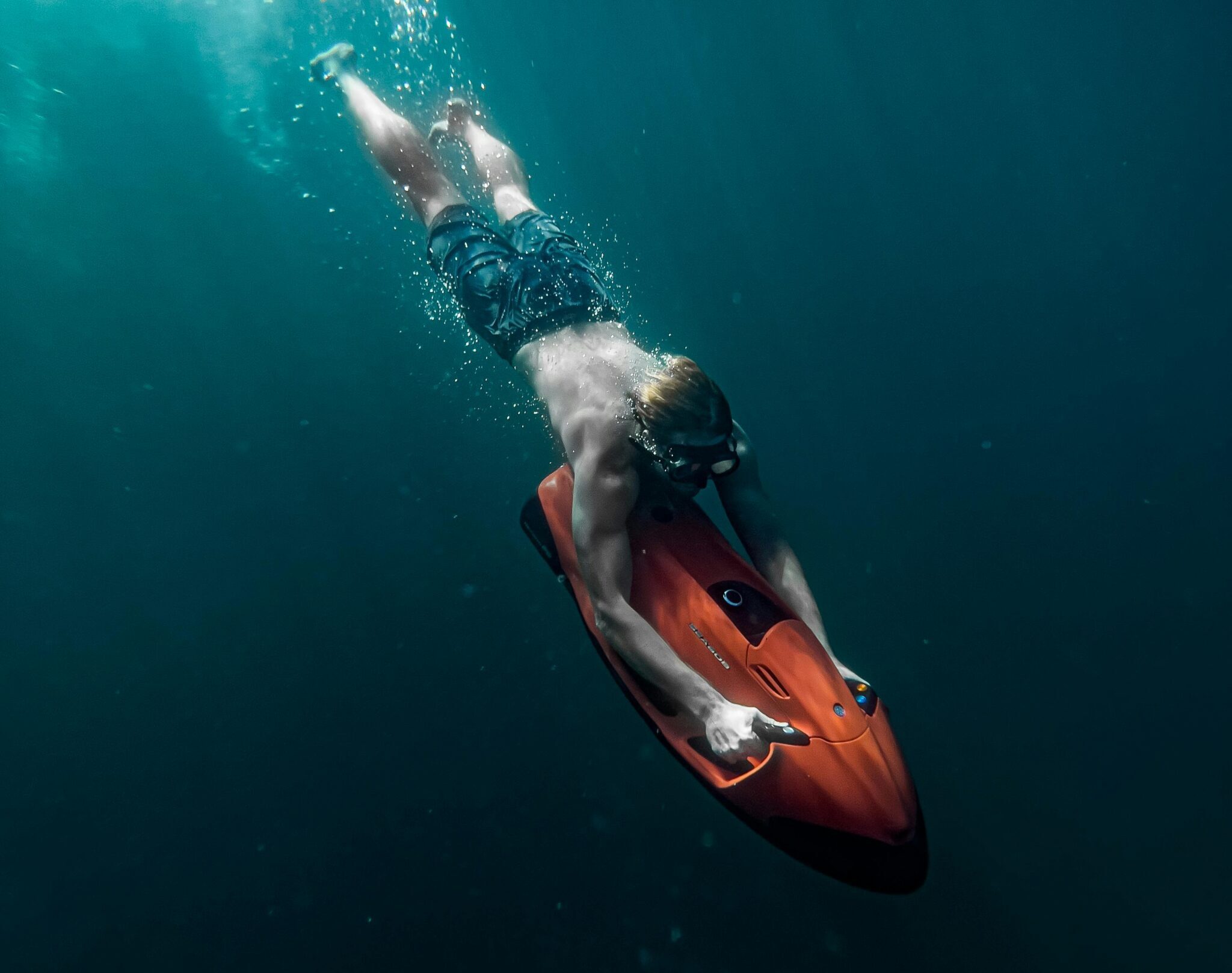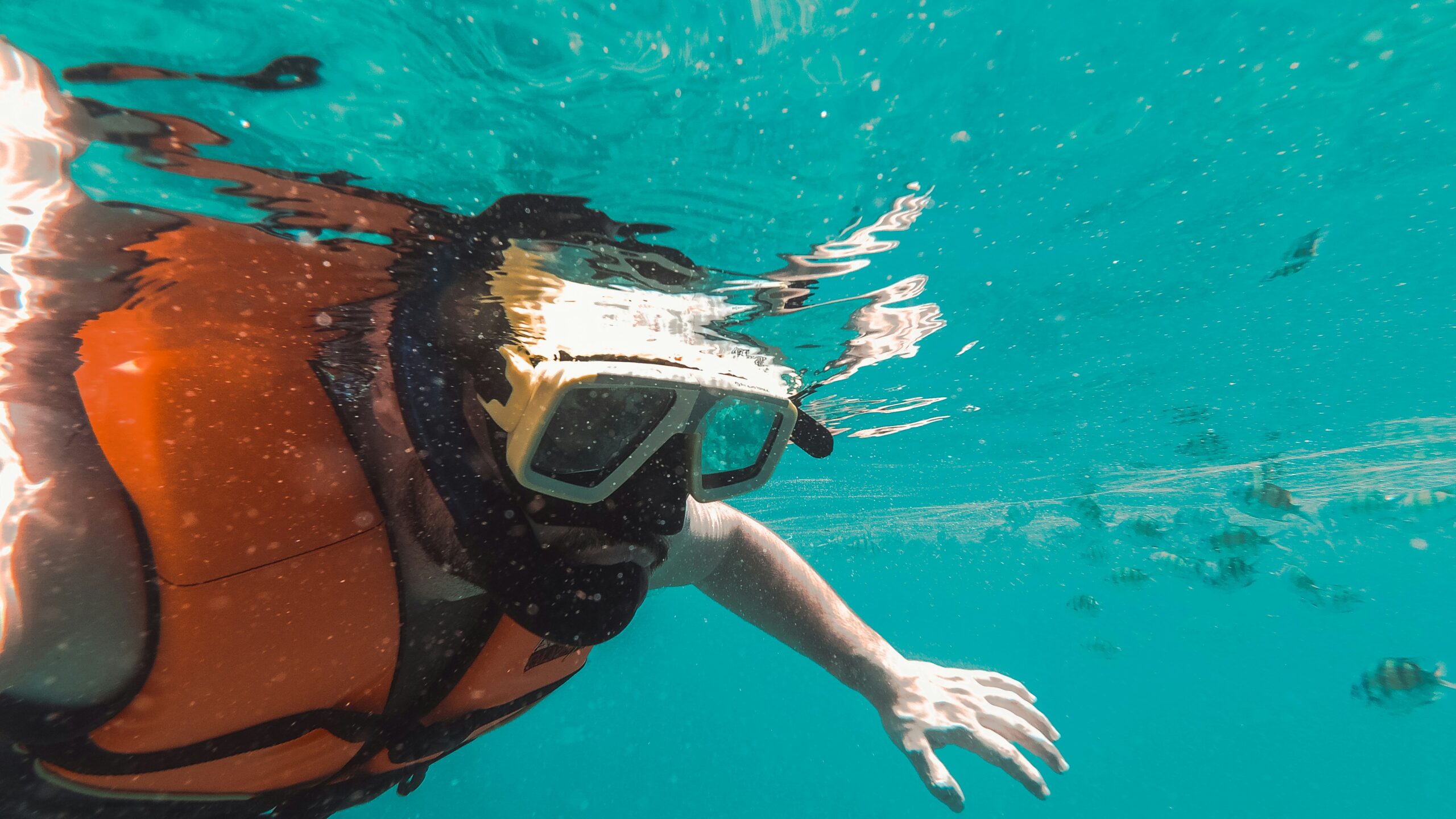

On the hunt for the best underwater metal detector to assist you in your treasure hunting endeavors? Excellent! You’ve come to the right place. In the article below, we’ve meticulously investigated and reviewed some of the best options currently available on the market. We are confident you will find what you’re looking for right here. Let’s dive in!
Our Top Pick
The Minelab Equinox 800 Multi-IQ Underwater Waterproof Metal Detector
The Minelab Equinox 800 is an impressive piece of manufacturing and our winner for the absolute best underwater metal detector. Its Multi-IQ technology allows for exceptional performance in various environments, offering superior detection capabilities for treasure hunters and enthusiasts alike. With its waterproof design and advanced features, it’s the ideal tool for uncovering treasures beneath the waves.
Runner Up
The Garrett AT MAX Underwater Detector
The Garrett ACE 300 is easily one of the best underwater metal detectors on the market. With its submersible design and high sensitivity, it excels in locating treasures buried beneath the water’s surface. Complete with a waterproof search coil and pinpointing functionality, it’s a must-have tool for any serious treasure hunter or diver.
Honorable Mention
The Minelab Equinox 600 Multi-IQ Underwater Metal Detector
The Minelab Equinox 600 is another strong candidate for the title of best underwater metal detector. With its innovative Multi-IQ technology and waterproof design, it offers exceptional performance in various underwater environments. Equipped with a built-in pinpointer and adjustable settings, it provides precise detection for both beginners and experienced users alike. Uncover hidden treasures with confidence using this versatile detector.
Honorable Mention
The Nokta Simplex Lite Metal Detector
The Nokta Waterproof Vibration Metal Detector offers an array of features that make it a strong candidate for best underwater metal detector. Its waterproof design allows for submersion up to 16.4 feet, making it perfect for deep dives in lakes, rivers, and oceans. The built-in vibration system provides discreet alerts, ideal for underwater use where sound may be muffled. Plus, with its compact and lightweight design, this detector is portable and easy to maneuver, making it an excellent choice for underwater treasure hunters.
Honorable Mention
The Wedigout Handheld Detector
A handheld option, the Wedigout Waterproof Pinpointer Metal Detector stands out as one of the best underwater metal detectors available. Designed for precision and durability, it boasts a waterproof construction, allowing you to explore underwater depths with confidence. Its advanced PI-iking 750plus technology ensures accurate detection of metal objects, while the pinpointing feature enables you to precisely locate targets. With adjustable sensitivity levels and a user-friendly interface, this detector offers versatility and ease of use for both beginners and experienced treasure hunters alike. Whether you’re searching in shallow waters or diving into deeper depths, this detector is your reliable companion for uncovering hidden treasures.
Honorable Mention
The SuperEye Underwater Metal Detector
The SuperEye S6026 Underwater Metal Detector is certainly one of the best underwater metal detectors available, catering to both novice enthusiasts and seasoned divers alike. Boasting a waterproof design, it ensures reliable performance even in submerged conditions, allowing you to explore rivers, lakes, and oceans with confidence. Equipped with advanced technology, this detector offers precise detection of metal objects, while its adjustable sensitivity levels provide versatility for various environments. The ergonomic and lightweight design ensures comfortable use during prolonged treasure hunting sessions. Whether you’re searching for lost treasures or relics, the SuperEye S6026 delivers exceptional performance and reliability.
Honorable Mention
The OMMO Underwater Metal Detector
The OMMO Handheld Underwater Metal Detector emerges as another one of the best handheld underwater metal detectors on the market, offering unparalleled performance and versatility for treasure hunters and adventurers alike. Engineered with waterproof technology, it ensures reliable operation even in submerged environments, allowing you to explore rivers, lakes, and oceans with confidence. With its rechargeable design and adjustable sensitivity levels, this detector provides convenient and customizable functionality for users of all experience levels. Whether you’re searching for lost artifacts or valuable treasures, the OMMO Metal Detector delivers exceptional sensitivity and accuracy, making it an indispensable tool for underwater exploration.
So there you have it! Our list of the best underwater metal detectors in 2024. We sincerely hope that one of these options will end up suiting your treasure hunting needs. Thanks for reading.
Additional Info
Accessories for Underwater Metal Detectors
| Accessory | Description |
|---|---|
| Waterproof Headphones | Specialized headphones designed to work underwater, allowing the detectorist to hear signals clearly even in noisy underwater environments. |
| Underwater Pin Pointer | Handheld device with a narrow probe used to precisely locate targets detected by the metal detector in underwater sediment or crevices. |
| Dive Belt | Weighted belt worn by divers to achieve neutral buoyancy, helping maintain stability and control while underwater. |
| Mesh Bag | Durable bag with a mesh construction, designed to hold treasures found during underwater metal detecting while allowing water to drain out. |
| Scuba Gear | Equipment including tanks, regulators, buoyancy control devices, and wetsuits used for diving to reach deeper underwater targets. |
| Waterproof Metal Detector Cover | Protective cover specifically designed to shield the metal detector from water, preventing damage caused by exposure to moisture. |
| Waterproof Gloves | Gloves made from waterproof materials to protect the hands from sharp objects, abrasive surfaces, and potential hazards while underwater. |
| Dive Watch | Water-resistant watch equipped with features such as dive time tracking, depth gauge, and decompression limits for safe underwater exploration. |
| Waterproof LED Flashlight | Compact and waterproof flashlight designed for use underwater, providing illumination for night dives or exploring dark underwater areas. |
| Underwater Scoop | Metal or plastic scoop with a serrated edge, used for digging and retrieving targets from underwater sediment or rocky areas. |
| Spare Batteries | Additional batteries to ensure uninterrupted operation of the metal detector, essential for extended underwater detecting sessions. |
| Snorkeling Vest (click for more details) | Assists in buoyancy and safety. Particularly useful for metal detecting in shallow water. |
So…What Separates the Best Underwater Metal Detectors from the Competition?
The best underwater metal detectors are distinguished by a combination of advanced features and rugged durability tailored specifically for underwater environments. These detectors boast superior waterproofing, allowing them to withstand immersion in water while maintaining optimal performance. Additionally, they offer exceptional sensitivity and discrimination capabilities, enabling detectorists to accurately identify targets even in highly mineralized or turbulent underwater conditions. Ease of use, ergonomic design, and reliable performance are also key factors that set the best underwater metal detectors apart, ensuring an enjoyable and productive treasure hunting experience beneath the waves.
Tips For Using and Operating Underwater Metal Detectors
Using underwater metal detectors can be an exciting and rewarding experience for treasure hunters, scuba divers, and beachcombers alike. However, it can require a certain level of skill and knowledge to use them effectively. Here are some tips on how to use underwater metal detectors:
Choose the Right Detector: Not all metal detectors are designed for underwater use. Make sure to select a model specifically built for underwater detecting. These detectors are usually waterproof and corrosion-resistant, able to withstand the pressures and conditions found underwater.
Understand Your Equipment: Before diving in, take the time to familiarize yourself with your metal detector. Read the user manual thoroughly to understand its features, settings, and limitations. Practice using it on land to get a feel for how it operates.
Prepare for the Dive: Plan your dive carefully, considering factors such as weather conditions, water visibility, and tide patterns. Ensure that your scuba gear is in good condition and that you have all necessary safety equipment. Before entering the water, double-check that your metal detector is properly assembled and functioning correctly.
Adjust Settings: Depending on the type of environment you’re searching in and the specific targets you’re looking for, you may need to adjust the sensitivity, discrimination, and ground balance settings on your metal detector. Experiment with different settings to find the optimal configuration for your underwater detecting needs.
Scan Methodically: Once underwater, move slowly and methodically, sweeping the metal detector’s coil back and forth in a systematic pattern. Pay attention to any changes in tone or signal strength, as these could indicate the presence of metal objects. Keep the coil close to the seafloor or lakebed to maximize your chances of detecting buried treasures.
Stay Safe: Always dive with a buddy and follow safe diving practices. Be mindful of your surroundings and watch out for potential hazards such as sharp objects, currents, and marine life. If you encounter rough conditions or feel uncomfortable at any point during the dive, don’t hesitate to surface and reassess the situation.
Respect the Environment: Whether you’re exploring shipwrecks, searching for lost jewelry, or hunting for artifacts, it’s essential to respect underwater ecosystems and cultural heritage sites. Obtain any necessary permits or permissions before conducting underwater metal detecting in protected areas, and always leave the environment as you found it.
Clean and Maintain Your Equipment: After each dive, rinse your metal detector thoroughly with fresh water to remove salt and debris. Check for any signs of damage or wear and address any issues promptly to ensure the longevity of your equipment.
By following these tips and practicing regularly, you can enhance your skills as an underwater metal detectorist and increase your chances of discovering hidden treasures beneath the waves. Just remember to approach this hobby with respect, caution, and a spirit of adventure.
Consider Waterproof Headphones While Underwater Metal Detecting
Sound signals are a metal detector’s way of communicating with the user. Underwater, where traditional audio cues can be muffled, waterproof headphones become indispensable. These headphones should offer clear audio, comfortable fit, and be compatible with your metal detector’s audio output. They are crucial for distinguishing between the beeps signaling mundane objects or the precious metals you’re searching for.
Maintenance Tips
What’s the point of owning one of the best underwater metal detectors if you don’t take care of it?Maintenance is crucial for its longevity and performance. After each use, it’s essential to rinse your detector with fresh water to remove salt and sand, check seals and compartments for water ingress, and store it properly to avoid wear and tear. Regular care ensures your equipment remains reliable on every dive.
Traveling With Your Metal Detector
When traveling, it’s important to disassemble your detector (if possible), pack it in a protective case, and be mindful of airline regulations, especially concerning batteries. Proper packing and preparation can prevent damage and ensure that your detector arrives ready for action.
Safety Precautions
Safety should always be the top priority in underwater metal detecting. This includes using the buddy system, being aware of your surroundings, and understanding the potential risks of diving environments. Proper training and preparation, respecting wildlife and habitats, and knowing your own limits are crucial components of safe underwater treasure hunting.
The Difference Between VLF and PI Underwater Metal Detectors
Very Low Frequency (VLF) and Pulse Induction (PI) are two technologies used in metal detectors, each with its advantages in different environments. VLF detectors are great for discriminating between metal types, while PI detectors excel in saltwater and highly mineralized environments. Understanding the differences can help you choose the right detector for your needs.
Tips For Finding Gold Jewelry With The Best Underwater Metal Detectors
Finding gold with underwater metal detectors can be an exhilarating pursuit, but it requires a combination of knowledge, skill, and patience. Here are some tips to help you maximize your chances of success:
Research Potential Locations: Before diving in, research areas known for gold deposits. Look for historical records, geological maps, and anecdotal accounts of gold discoveries in rivers, streams, and coastal areas. Pay attention to factors such as bedrock formations, water flow patterns, and previous mining activity, as these can indicate where gold might accumulate.
Understand Gold’s Characteristics: Gold has unique properties that affect how it behaves underwater. It is dense and heavy, which means it tends to sink and settle in areas of low water flow, such as cracks in bedrock, crevices, and deep depressions. Understanding these characteristics will help you narrow down your search areas and focus your efforts more effectively.
Choose the Right Detector and Coil: Selecting the appropriate metal detector and coil configuration is crucial for finding gold underwater. Look for detectors specifically designed for gold prospecting, as they are equipped with features such as high sensitivity to small targets and adjustable frequency settings. Consider using smaller coils that offer better maneuverability and sensitivity to small gold nuggets.
Fine-Tune Your Settings: Adjust your metal detector’s settings to maximize its sensitivity to gold while minimizing interference from mineralized soils and other metals. Experiment with different sensitivity levels, discrimination settings, and ground balance adjustments to optimize performance for the specific conditions of your target area.
Scan Slowly and Methodically: When searching for gold underwater, move slowly and systematically, keeping the coil close to the bottom and overlapping your sweeps to ensure thorough coverage. Pay close attention to subtle changes in tone and signal strength, as even tiny gold flakes can produce faint signals. Take your time and don’t rush through the search process.
Focus on Likely Hotspots: Concentrate your efforts on areas where gold is most likely to accumulate, such as inside bends of rivers, downstream of obstacles like boulders and bedrock outcrops, and along the edges of deep channels. Target underwater features that trap and concentrate gold, such as gravel bars, potholes, and submerged vegetation.
Be Patient and Persistent: Finding gold underwater requires patience and persistence. It’s unlikely that you’ll strike it rich on your first dive, so don’t get discouraged if you don’t find gold right away. Keep refining your techniques, exploring new areas, and learning from each detecting session. Remember that every signal you investigate brings you one step closer to uncovering that elusive treasure.
Respect Regulations and Environment: Always adhere to local regulations governing gold prospecting and metal detecting activities, especially in protected or environmentally sensitive areas. Minimize disturbance to aquatic habitats, and leave no trace of your presence behind. Remember that responsible and ethical behavior ensures the sustainability of your hobby for future generations.
By following these tips and honing your underwater metal detecting skills, you can increase your chances of finding gold and experiencing the thrill of uncovering hidden treasures beneath the water’s surface. Just remember that success often comes to those who are diligent, persistent, and willing to explore new horizons.
Underwater Metal Detecting in Saltwater vs Freshwater
The environment you choose to hunt in can significantly affect your metal detecting experience. Saltwater poses challenges with mineralization and requires equipment suited to that environment, while freshwater offers different challenges and opportunities. Discussing the nuances of each can prepare enthusiasts for what to expect and how to adapt their techniques accordingly.
Legal Considerations of Underwater Metal Detecting
Understanding the legal landscape is essential for any underwater metal detectorist. This includes knowing the laws regarding finders’ rights, respecting protected wrecks and archaeological sites, and understanding the process for declaring valuable finds. Navigating these legal waters is as crucial as the physical ones for a responsible and rewarding metal detecting experience.












